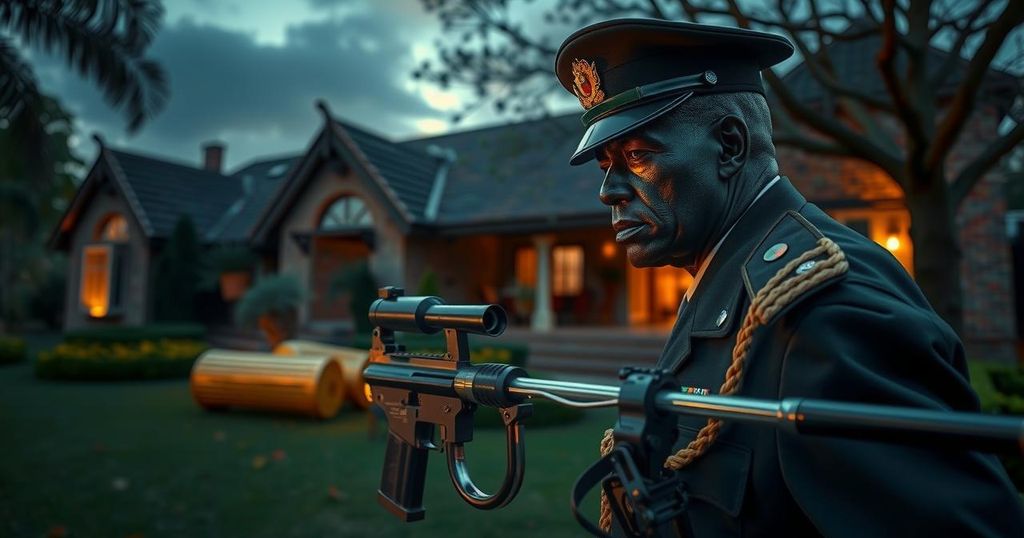South Sudan’s security forces are investigating a shootout at the home of Akol Koor, the former spy chief who was dismissed amid coup rumors. The incident, which occurred in Juba, involved a misunderstanding among security forces and led to injuries. Political tensions remain high as the nation faces ongoing instability and delayed elections.
South Sudan’s security forces are currently probing a recent shootout that occurred at the residence of Akol Koor, the former head of the country’s National Security Services (NSS), who was dismissed in early October amid allegations of a coup attempt. The shootout erupted on Thursday evening in the capital, Juba, and reportedly involved security personnel stationed for Koor’s protection, leading to chaos and confusion in the area. Following the incident, military personnel were deployed around Koor’s home in the Thongpiny district, and while the situation is now reportedly calm, the residents have been instructed to remain vigilant due to ongoing tensions.
Koor’s dismissal followed a turbulent political climate marked by power struggles, ethnic conflict, and deep economic challenges in South Sudan. The shootout lasted approximately one hour and was initially connected to Koor’s purported arrest. However, the South Sudan People’s Defence Forces (SSPDF) have clarified that Koor remains in his residence and refuted claims that he had sought refuge in a United Nations compound. SSPDF spokesman Lul Ruai Koang explained that the shootout stemmed from a misunderstanding among security forces assigned to protect Koor, resulting in exchanged gunfire that ultimately injured two servicemen.
The backdrop of this incident includes South Sudan’s longstanding issues of corruption and instability following a civil war that began in 2013, involving significant casualties and displacements. The international community is increasingly concerned, particularly as the government has postponed the nation’s first elections for another two years, intensifying calls for a unified and stable transitional government. Despite these challenges, daily life around Koor’s residence has returned to normal, although the area remains secured by military forces to prevent any further incidents.
The Republic of South Sudan, which gained independence from Sudan in July 2011, has faced considerable political instability and conflict since its inception. The leadership of President Salva Kiir has been challenged by rival factions, particularly the forces loyal to former Vice President Riek Machar, leading to a protracted civil war that has resulted in extensive loss of life and displacement of populations. The recent dismissal of Akol Koor, a pivotal figure in South Sudan’s national security apparatus, amid allegations of a coup plot highlights the vulnerabilities within the government and the urgency for political reforms. The ongoing delay of elections, pushed to December 2026, continues to frustrate both citizens and international stakeholders seeking peace and stability in the country.
In summary, the shooting at the residence of Akol Koor underscores the fragile security situation in South Sudan following his controversial dismissal. Current investigations by security forces aim to clarify the circumstances surrounding the incident, which reflects broader issues of political instability and military mismanagement in the nation. As South Sudan grapples with its tumultuous political landscape and significant socio-economic challenges, the international community remains watchful and concerned about the prospect of sustained peace and democratic governance.
Original Source: www.rfi.fr






